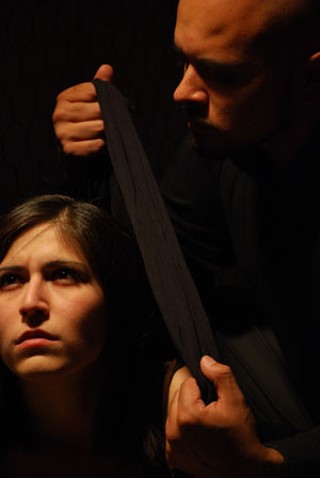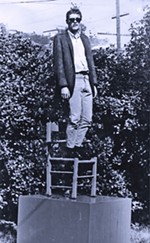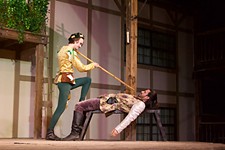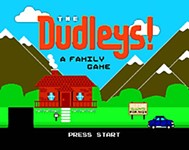The Love Sonatas
Much has been invested in mounting Manuel Zarate's five-play cycle, all to answer the basic question: What is love?
Reviewed by Avimaan Syam, Fri., May 30, 2008

The Love Sonatas
Rollins Studio Theatre at the Long Center, through June 1
Kuka: 2 hr, 30 min
Shards: 2 hr, 10 min
"What is love?" Morgan, a filmmaker in Shards, pointedly asks his documentary subjects, and it's as difficult a question as any of us will ever have to answer. What is love? Where do you find it? How do you maintain it? Why do you lose it? Are there any simple answers to these questions? Ask Manuel Zarate, whose reply is parsed out through his five-play cycle, The Love Sonatas.
The expanse of The Love Sonatas goes beyond five plays, though; it spans several decades of fictional time, 17 years of writing, and the efforts of two dozen actors and five directors. A lot of time, a lot of money, and the energies of a lot of people have been invested in the production of the entire cycle – FourSquare, Sonata Escondida, Shards, Stroke, and Kuka – at the Long Center, and no playwright outside of the Bard is likely to get such a run in Austin anytime soon.
The Love Sonatas are linked by theme and a set of overlapping characters: Rodolfo, for example, is seen in FourSquare, Shards, and Kuka. Because of the different settings, directors, and actors, however, the two Rodolfos I watched bore little resemblance to each other. Ben Wolfe's Rodolfo, free to wield his awful power and wax philosophic as an army captain in Guatemala, is much more articulate and dynamic than Curtis Wayne's reflective counterpart. The Rodolfo that Wayne plays is 10 years older and has seen the other side of the prison world, having spent a few years behind bars in the same jail he once dominated.

The two productions I saw prior to this review, Kuka and Shards, differ vastly despite their similar characters, themes, and author. Kuka, directed by Mark Pickell, is the last play in the cycle. The titular character is an imprisoned native girl with a gift for painting dark, prophetic images. She is blindfolded throughout her captivity, and her attempts to escape her torture through fantasy are abruptly broken up by visits from the imposing guards. The details of why Kuka is in prison are slowly – incredibly slowly – meted out, but without real definition or revelation. The tale involves armies, corruption, gunshots, racism, and her seemingly weak-willed father becoming a rebel leader. This should be the stuff of drama, action, but in Kuka's slow, in-and-out pacing, there's no urgency or conflict about it.
The real drama of Kuka lies in the back-and-forth between the painter girl and her barbaric yet sophisticated captor. She's forced to paint his portrait (despite the blindfold), and their revelations to each other during that time are truly captivating. There are 35 minutes of an engaging play in Kuka, but it's wadded up in two hours of digressionary scenes.
Zarate is at his best in Kuka when he's writing one-on-one dialogue, and perhaps that's why Shards is much more compelling. The script has more palpable drama to latch on to: temptation, infidelity, unwanted pregnancies, rifts in marriages. Zarate has a tendency to deviate from straightforward storytelling, splashing between different times and realities. Mostly this sees the addition of semihumorous scenes of drinking or dancing when the juicy drama is wanting, though Shards' forward momentum holds strong throughout. It tells the tale of five people in Seattle locked in a love pentagon of sorts, and Paula Russell's direction keeps the play crisp.
In his program notes, Zarate muses that "there is no finish line, simply a journey." Seventeen years of creation can give you perspective. But this quote is more than just commentary on Zarate's process; it reflects the philosophy of the trials and tribulations we all go through in search of love. What is love? There is no finish line, The Love Sonatas tell us, no black-and-white answer: You can only search for truth in this weird, wild world of ours.










